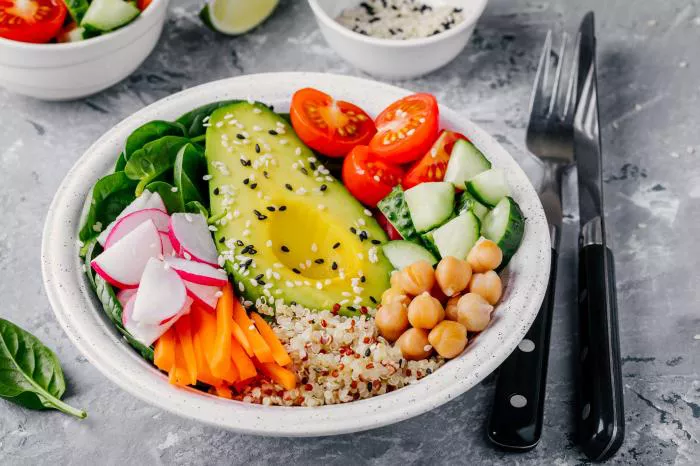Breastfeeding is a beautiful and essential part of parenting. It provides vital nutrients to infants and fosters a strong bond between mother and child. As more parents adopt vegan lifestyles, many wonder how a vegan diet may affect breastfeeding. This article will explore the relationship between breastfeeding and a vegan diet, focusing on the necessary nutrients and considerations for breastfeeding mothers who choose veganism.
The Importance of Breastfeeding
Breastfeeding is recommended for at least the first six months of a baby’s life. It offers numerous benefits, including:
Nutritional value: Breast milk is rich in essential nutrients, antibodies, and enzymes that support a baby’s growth and development.
Bonding: The act of breastfeeding fosters a deep emotional connection between mother and child.
Health benefits: Breastfeeding can reduce the risk of infections, allergies, and chronic diseases in infants.
Understanding a Vegan Diet
A vegan diet excludes all animal products, including meat, dairy, eggs, and honey. Instead, it focuses on plant-based foods such as:
Fruits
Vegetables
Whole grains
Legumes
Nuts and seeds
While a vegan diet can be healthy and nutritionally adequate, it requires careful planning to ensure all essential nutrients are consumed.
Key Nutrients for Breastfeeding Mothers
Breastfeeding mothers need extra nutrients to support both their health and milk production. Here are some critical nutrients to consider when following a vegan diet:
Protein
Protein is essential for growth and development. Breastfeeding mothers require approximately 65 grams of protein per day. Plant-based sources of protein include:
Legumes (beans, lentils, chickpeas)
Tofu and tempeh
Quinoa
Nuts and seeds
Including a variety of these foods in your diet can help meet your protein needs.
Calcium
Calcium is crucial for building strong bones in both the mother and baby. Vegan sources of calcium include:
Fortified plant-based milk (almond, soy, oat)
Leafy green vegetables (kale, broccoli, collard greens)
Tofu (set with calcium sulfate)
Almonds and sesame seeds
Breastfeeding mothers should aim for about 1,000 mg of calcium daily.
Vitamin D
Vitamin D is vital for calcium absorption and overall bone health. While the body can produce vitamin D from sunlight, dietary sources are also important, especially for vegans. Vegan sources of vitamin D include:
Fortified plant-based milk
Fortified orange juice
Mushrooms exposed to UV light
If you live in an area with limited sunlight, consider a vitamin D supplement after consulting with a healthcare provider.
Omega-3 Fatty Acids
Omega-3 fatty acids support brain development in infants. While fish is a common source, vegans can obtain omega-3s from:
Flaxseeds
Chia seeds
Walnuts
Algal oil supplements
Aim for about 1.6 grams of omega-3 fatty acids per day for breastfeeding mothers.
Iron
Iron is crucial for both maternal health and baby’s growth. Plant-based sources of iron include:
Lentils and beans
Tofu
Dark leafy greens
Quinoa
Fortified cereals
Consuming vitamin C-rich foods, like oranges or bell peppers, alongside iron-rich foods can enhance iron absorption.
Vitamin B12
Vitamin B12 is primarily found in animal products. Therefore, breastfeeding mothers on a vegan diet must ensure they receive enough B12 through fortified foods or supplements. Sources include:
Fortified plant-based milk
Fortified breakfast cereals
Nutritional yeast
Aim for at least 2.4 mcg of vitamin B12 daily.
Iodine
Iodine is important for thyroid function and overall health. Vegan sources of iodine can be limited. Consider incorporating:
Seaweed (nori, kelp)
Iodized salt
If unsure, consult a healthcare provider about iodine supplements.
Hydration
Staying hydrated is essential for breastfeeding mothers. Water, herbal teas, and clear broths are excellent choices. Dehydration can affect milk supply, so aim to drink plenty of fluids throughout the day.
Managing Common Concerns
Milk Supply
Many mothers worry about their milk supply when following a vegan diet. To maintain a healthy milk supply, focus on consuming adequate calories and nutrients. Ensure you’re eating enough whole foods and snacks throughout the day.
Weight Loss
Some mothers may experience weight loss during breastfeeding, especially when adhering to a vegan diet. If you are losing weight rapidly, it’s essential to increase your caloric intake. Consult a healthcare provider or a registered dietitian for personalized advice.
Tips for a Healthy Vegan Diet While Breastfeeding
Plan meals: Prepare meals in advance to ensure you’re meeting your nutritional needs.
Snack smart: Keep healthy snacks on hand, such as nuts, seeds, fruits, and whole-grain crackers.
Read labels: Check food labels for fortified nutrients, especially vitamin B12, calcium, and vitamin D.
Seek support: Consider consulting a registered dietitian who specializes in vegan nutrition for personalized guidance.
See also: Do Vegan Foods Increase Breast Milk
Conclusion
Breastfeeding while following a vegan diet is entirely feasible with proper planning. By focusing on essential nutrients and incorporating a variety of plant-based foods, breastfeeding mothers can support their health and their baby’s development. Remember to consult with a healthcare provider or a registered dietitian for personalized advice. With dedication and knowledge, a vegan breastfeeding journey can be rewarding for both mother and child.
Breastfeeding is a personal choice, and every mother’s journey is unique. Whether you are a new mother or an experienced parent, understanding how to nourish yourself and your baby while following a vegan diet can lead to a fulfilling experience. Embrace the journey, and celebrate the bond that breastfeeding creates.
Related topics:


